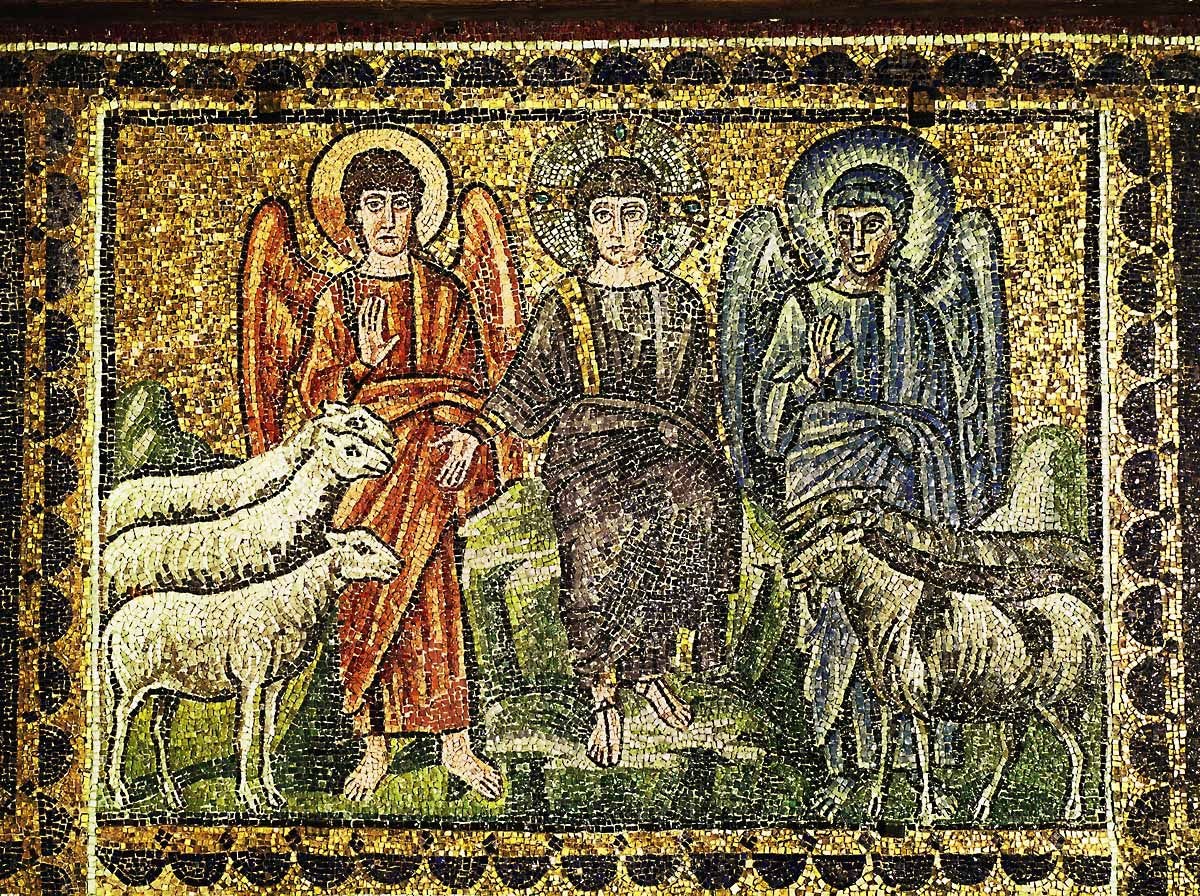On this Meatfare Sunday, the Church gives us this epistle reading to remind us that true Christian life is not about food or external observances, but about charity and our duty toward others. St. Paul teaches that while eating or abstaining from meat does not in and of itself make us holy, if our ascetical observances are accompanied by works of mercy, guided by charity, they are an excellent opportunity to grow in the virtues of humility and self-control and to build up the Body of Christ.
Matthew’s gospel has two major themes that tie in with this preparatory season. First, Jesus teaches us that works of mercy are an essential part of the Christian life. Second, He teaches that hell is a real and just consequence for those who do not follow the Way.
It is difficult for us to imagine eternal life in heaven or hell because it is outside of our experience. What we know is this present life of suffering, sin, and strife with the evil powers of corruption. It is difficult for us to set our eyes on a prize that comes after death, not in this world. But this is precisely what Our Lord is telling us to do in this story. He is telling us once again that we will inherit his eternal kingdom in heaven where there is peace without strife and consolation without mourning, IF we will just follow the unselfish path, He has designed us for.
The Church has given us 14 works of mercy, corporal and spiritual, and we need to pick a few that fit our station in life and practice them according to the principle of subsidiarity. The main focus is on loving the person in front of you—willing the good of the other. This is how we grow in virtue, but it is also a way that we encounter Christ. There is a popular story about how when a priest was not immediately available to give him the last rites, Aquinas asked for poor people to be brought into his room so that he could see Christ in them.
And who are the poor that we are to seek out for our works of mercy? The Fathers say that first we should feed and care for our children (Ambrose) and then those brothers and sisters who partake of the Divine Mysteries with us (Chrysostom). We don’t belong to this world, so Catholics need each other to survive and flourish. Performing works of mercy are not so much about nourishing the body as they are about nourishing the soul. Those that have yoked themselves to the Devil have their own way of life that is foreign to ours. This is not to say that it is wrong to show love to non-Catholics, but there is an understand among the Fathers that “a deed of mercy shown to the more holy is more acceptable to God than one shown to the less holy” (Origen).
Concerning heaven and hell, Christ tells us that bad men excuse their own sins and try to prove to themselves that they are venial, but Christ says, “these shall go away into everlasting punishment, but the righteous into eternal life.”
The Fathers have a lot to say about this final verse of the passage. Apparently, Christians have been trying to downplay the realities of hell since the beginning, but the Fathers assure us it is very real suffering and it is eternal. There is no going back or making up for sins after death. We have this time on earth to prove our faith and loyalty and that is it. If we fail, we will suffer the consequences forever. Hell is a very serious reality that is not popular to contemplate, but it is worth our deep consideration. We want to err on the safe side. If we prefer temporal things to Christ, if we prefer pleasure to charity, if we share in the Lord’s table but afterwards commit mortal sin, we must return to a state grace in the Church or suffer the evil consequences forever. Christ is merciful, but he is also just. He does not force us to know, love, and serve Him with undivided hearts. It is our choice.



